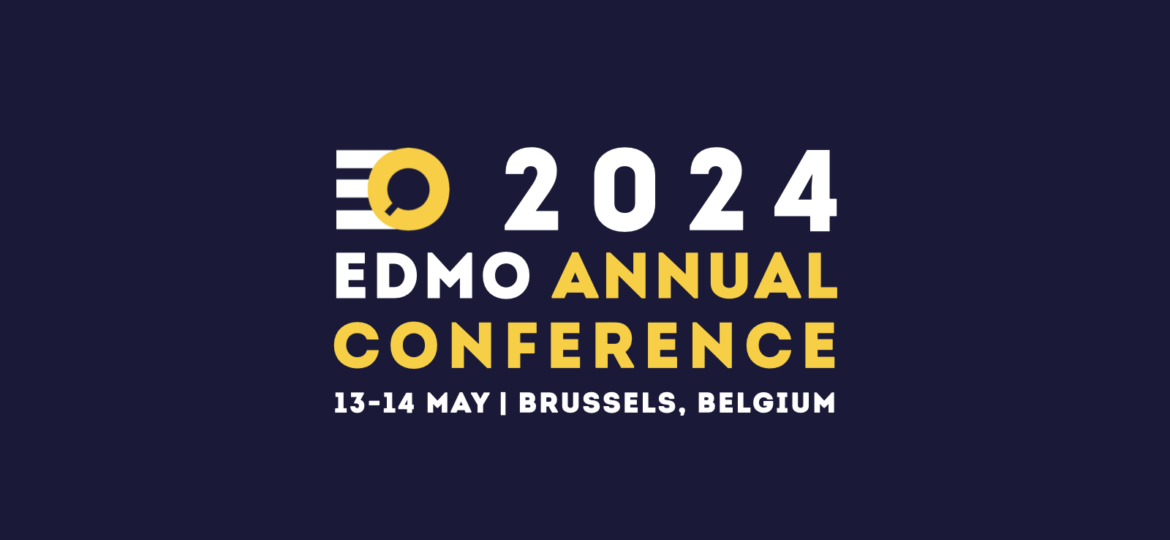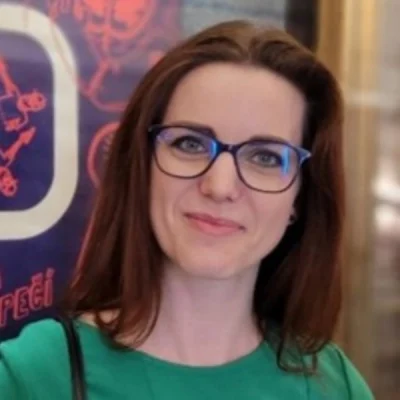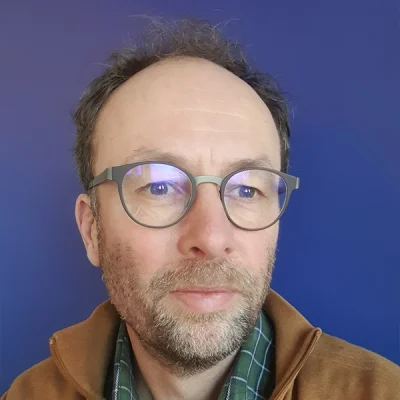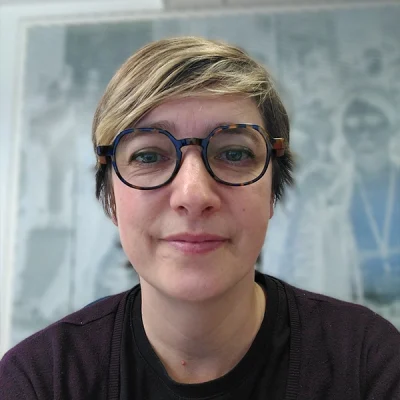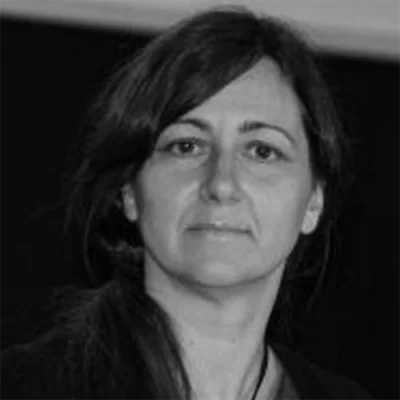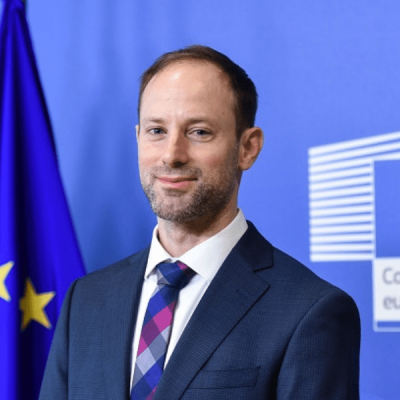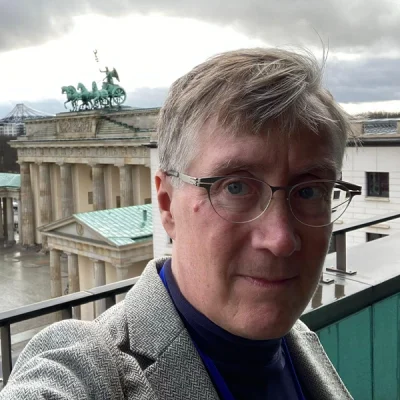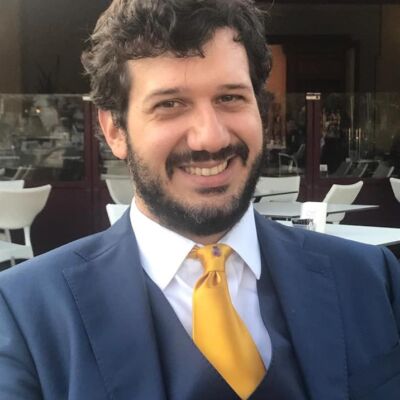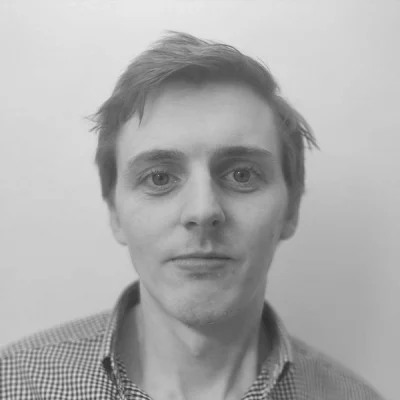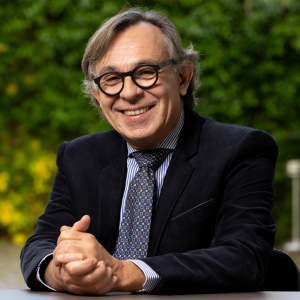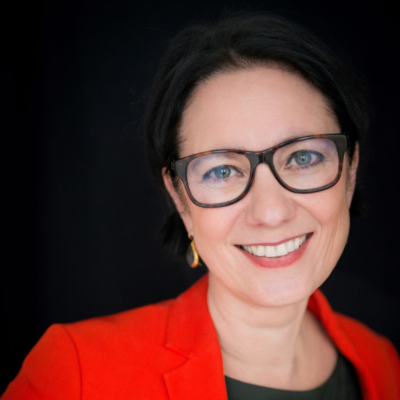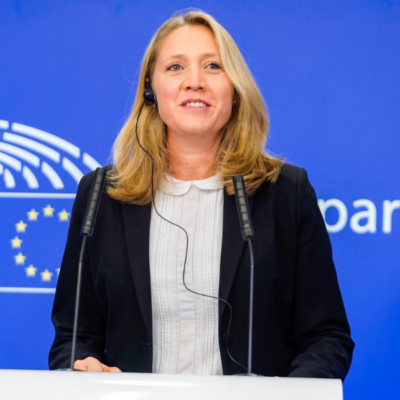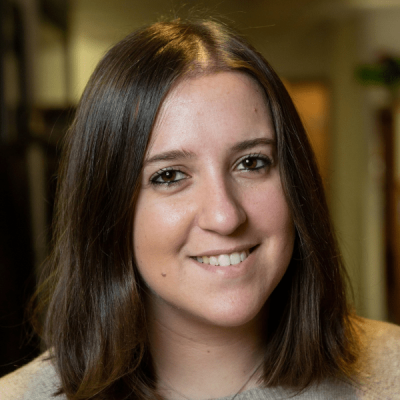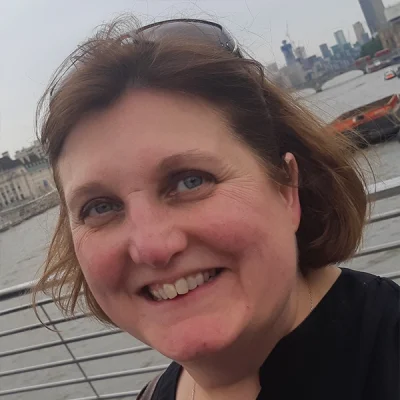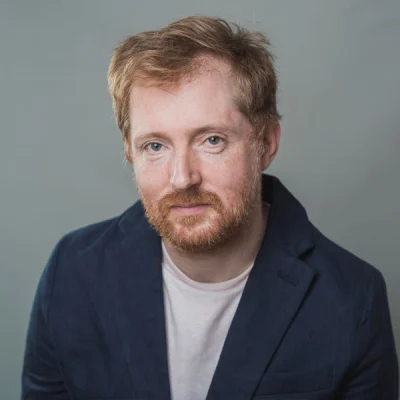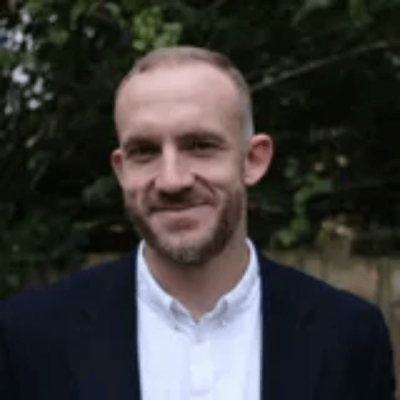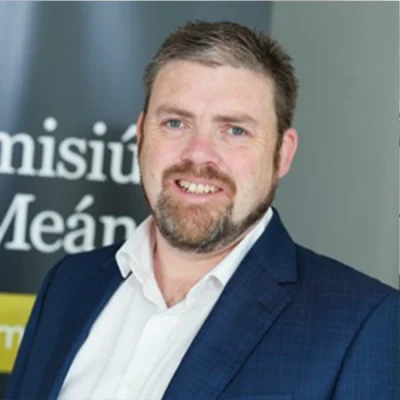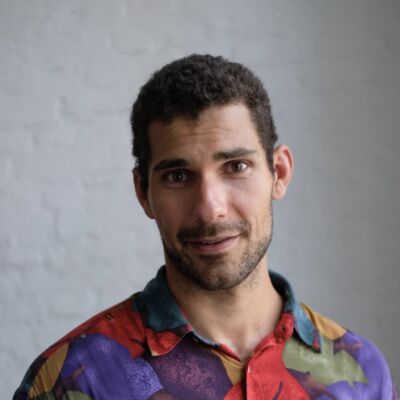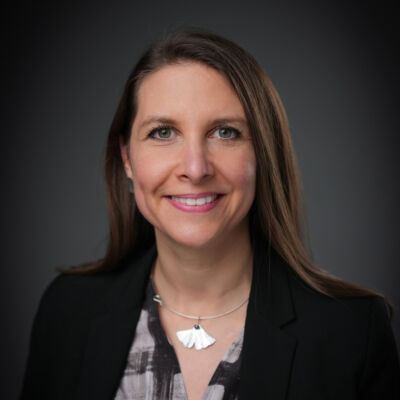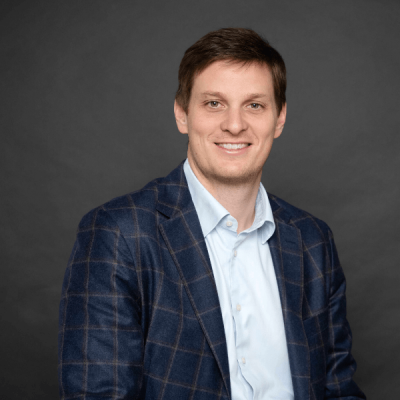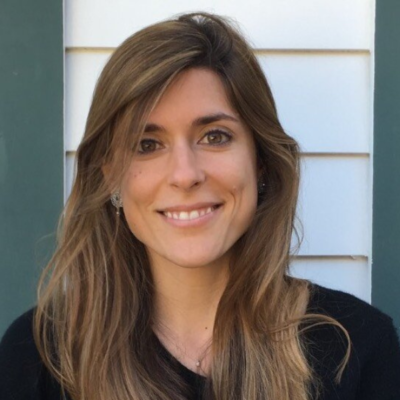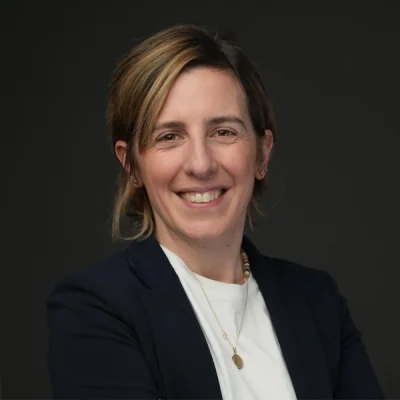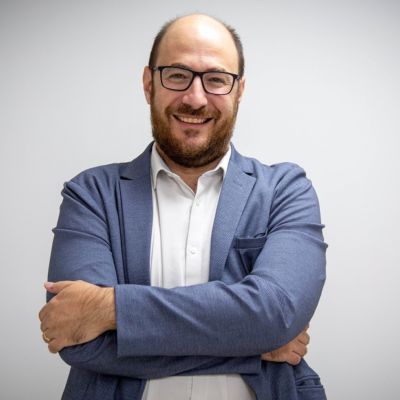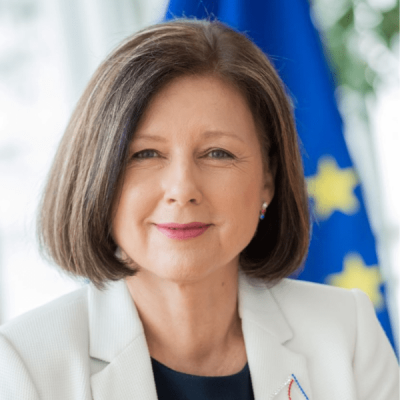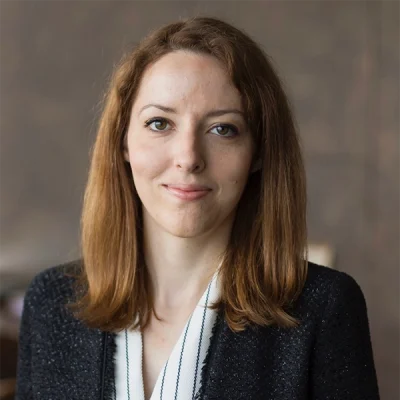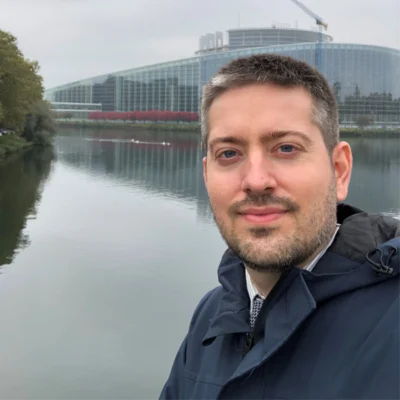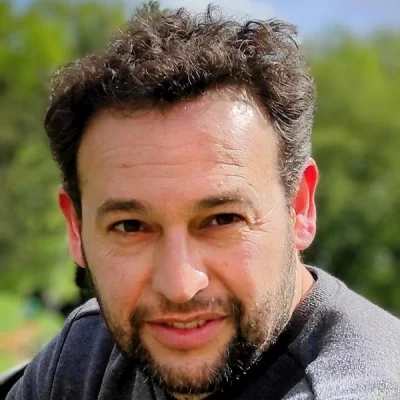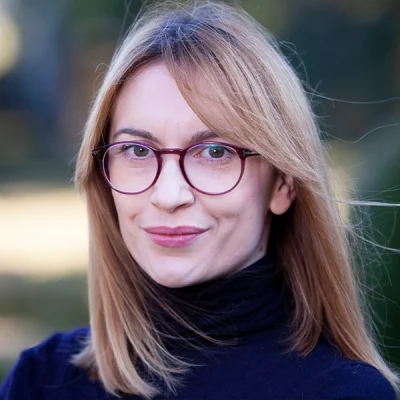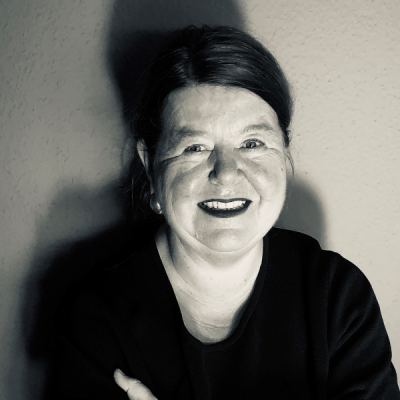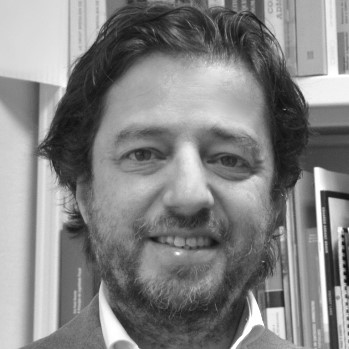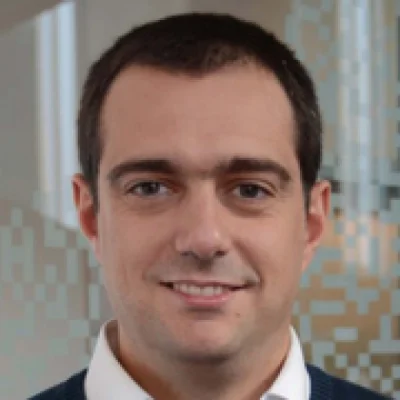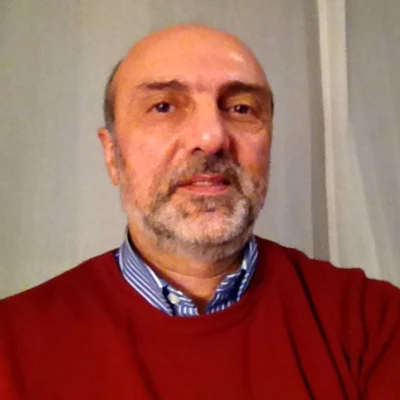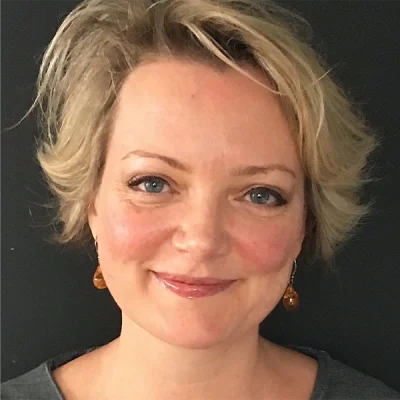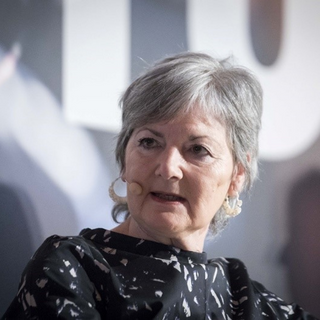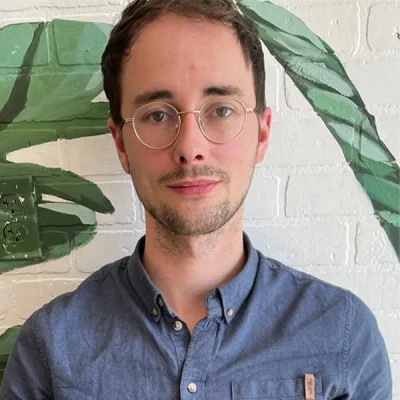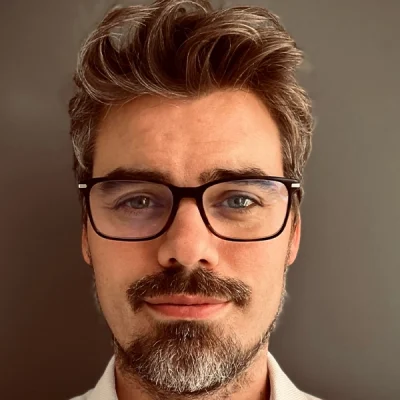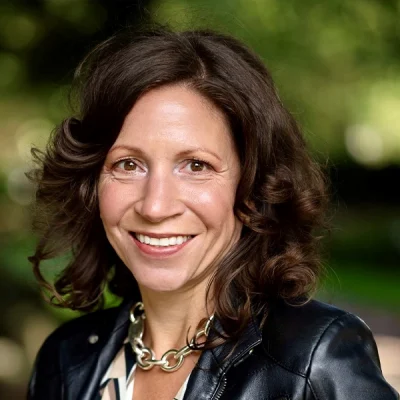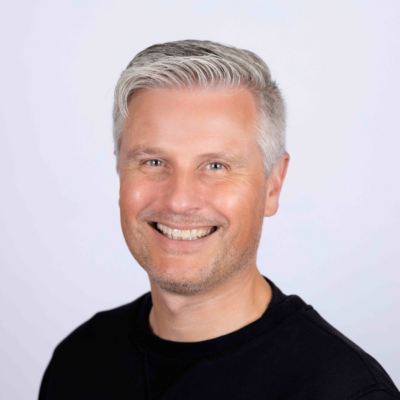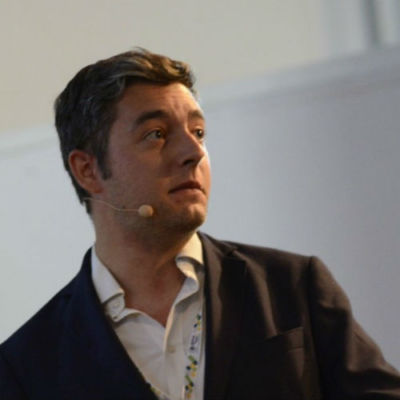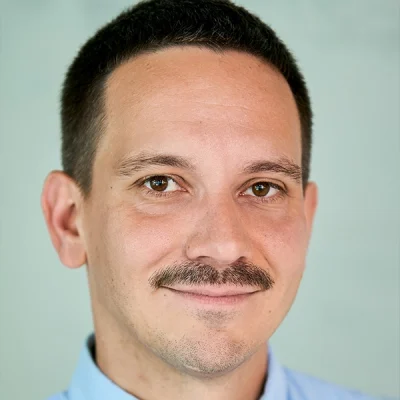Day 1: Monday, 13 May (13.30 – 19.15 CEST)
13.30 - 14.00
Room: Out of the box (floor -1)
Registrations and networking
14.00 – 14.20
Room: Inspire 1+2 (floor -1)
Welcome and introduction
Madeleine de Cock Buning | EDMO, School of Transnational Governance, EUI
Miguel Poiares Maduro | EDMO, School of Transnational Governance, EUI
14.20 – 14.45
Room: Inspire 1+2 (floor -1)
AI and disinformation: setting the scene
Claes de Vreese | University of Amsterdam
14.45 – 16.15
Room: Inspire 1+2 (floor -1)
Panel 1 – AI as a contributor to disinformation
AI and, in particular, generative AI have been quite the buzzwords for the last few months. The release of updated generative AI products has opened questions on their role in the production and dissemination of disinformation. This panel aims to discuss how generative AI contributes to disinformation and assess real risks.
Chair: Claes de Vreese | University of Amsterdam
Táňa Abrhámová | CEDMO
Irina Orssich | European Commission
Tjade Stroband | Microsoft
Joanna Bryson | Hertie School
Marc Faddoul | AI forensic
David Mekkaoui | Europe MediaLab
16.15 – 16.45
Room: Out of the box (floor -1)
Coffee Break
16.45 – 18.15
Room: Inspire 1+2 (floor -1)
Panel 2 – AI as part of the solution to disinformation
After having discussed the role of AI (in particular generative) in creating and disseminating disinformation, the focus moves to how AI can also be used as a tool that contributes to tackling disinformation.
Chair: Kalina Bontcheva | University of Sheffield, BROD, vera.ai
Carlos Hernández-Echevarría | IBERIFIER, Maldita
Andrew Dudfield | FullFact
Antonis Ramfos | ATC, EDMO, TITAN
Remo Sasso | xDNA & Aletheia
Gijs van Beek | BENEDMO, Textgain
18.15 – 19.15
Room: Out of the box (floor -1).
Cocktail
Day 2: Tuesday, 14 May (08.30 – 18.30 CEST)
08.30 – 09.00
Room: Out of the box (floor -1)
Registrations and networking
09.00 – 10.30
Room: Inspire 1+2 (floor -1)
Panel 3 – Disinformation and media and information literacy – standards and best practices
It is often said that media and information literacy activities strongly contribute to building societal resilience. However, it is important that these activities follow the lifelong learning approach, that they comply with quality standards, and that their impact can be assessed. This panel will be an occasion to discuss the cycle and impact of media and information literacy initiatives.
Chair: Stephanie Comey | Coimisiún na Meán
Jacob Lolck | European Parliament
Juliane von Reppert-Bismarck | Lie Detectors
Flavia Colonnese | Ecorys
Sally Reynolds | Media & Learning Association
10.30 – 11.00
Room: Out of the box (floor -1)
Coffee Break
11.00 – 11.30
Room: Inspire 1+2 (floor -1)
Keynote speech
Věra Jourová | Vice-President for Values and Transparency, European Commission
11.30 – 13.00
Room: Inspire 1+2 (floor -1)
Panel 4 – Disinformation and the 2024 European Parliament elections
Ahead of the 2024 European Parliament elections, it is key to discuss which disinformation narratives can impact the rights of the citizens to make informed decisions and which measures are implemented to guarantee those rights and create societal resilience. This panel will start with a presentation of the work of the EDMO Taskf Force on elections and will be an opportunity to get direct knowledge on what is implemented by relevant actors in order to guarantee the rights of citizens.
Chair: Madeleine de Cock Buning | EDMO, School of Transnational Governance, EUI
Giovanni Zagni | EDMO, Pagella Politica / Facta.news
Emma Goodman | EDMO, European University Institute and London School of Economics
Delphine Colard | European Parliament
Anna Zizola | X
Daniel Braun | European Commission
13.00 – 14.00
Room: Boho (groundfloor)
Lunch Break
Please note: the lunch room will close its doors at 14.00. Thank you for respecting this timing.
14.00 – 14.30
Networking or free time for a little break
14.30 – 16.00
Room: Inspire 1+2 (floor -1)
Panel 5 – Online platforms’ data access for research purposes
Access to data remains one of the main priorities for the community, and data access features prominently in the CoP and the DSA. In addition to academic researchers, fact-checkers and civil society need to be involved in this debate. The session will start with the recent developments in the work EDMO is leading in this regard to gather feedback from the community and then elaborate on solutions.
Chair: Lisa Ginsborg | EDMO, School of Transnational Governance, EUI
Rebekah Tromble | George Washington University, EDMO
Alberto Rabbachin | European Commission
John Evans | Coimisiún na Meán
Simone Gobello | META
Bastien Carniel | Science Feedback
Iva Nenadic | EDMO, Centre for Media Pluralism and Media Freedom, EUI
16.00 – 16.30
Room: Out of the box (floor -1)
Coffee Break
16.30 – 18.00
Room: Inspire 1+2 (floor -1)
Panel 6 – The EU policy to tackle disinformation – The Code of Practice, the DSA and the guidelines on elections integrity
This final session focuses on the regulatory solutions in the EU. In particular, it will start highlighting how EDMO contributes and can contribute to the EU policy in place and will then gather feedback on the current implementation and future steps of the policy.
Chair: Paula Gori & Paolo Cesarini | EDMO, School of Transnational Governance, EUI
Krisztina Stump | European Commission
Tommaso Canetta | EDMO, Pagella Politica / Facta.news
Milan Zubíček | Google
Marie Bohner | Agence France-Presse, EFCSN
Katarína Klingová | GLOBSEC
Niklas Eder | Oversight Board
18.00 – 18.30
Room: Inspire 1+2 (floor -1)
Closing Remarks
Paolo Cesarini | EDMO, School of Transnational Governance, EUI
When: Monday 13 May (afternoon) & Tuesday 14 May (full day). Precise timings are still being decided.
Where: nhow Brussels Bloom (Rue Royale 250, 1210 Brussels, Belgium)
How to attend: This year, the attendance at the conference is in-person only.
Note that in-person participation in the event is subject to limited capacity, for logistical and safety reasons. We love a crowded room but we want to keep it safe and comfortable.
Contact: [email protected]
Videos
Tanya has lately become Communications Manager of CEDMO. She has 15 years of experience in PR, advertising and media – from both the corporate and non-profit spheres. Prior to joining CEDMO, she led media team of an educational program at People in Need organization and coordinated communications for the Czech Safer Internet Center consortium. She graduated in Business Economics and Management from the University of Economics in Prague with a minor in Economic Journalism.
Talking at: PANEL 1 – AI as a contributor to disinformation (Monday 13 May, morning)
Gijs van Beek has been a project lead for over 20 years in online anti-discrimination, extremism and disinformation. He coordinates Textgain’s European research centre on online hate and disinformation, the European Observatory of Online Hate (www.eooh.eu). With a focus on developing ethical Artificial Intelligence (AI) for practical use in all EU languages. Additionally, Textgain is a tech partner in the Belgium-Netherlands Digital Media and Disinformation Observatory (BENEDMO).
Talking at: PANEL 2 – AI as part of the solution to disinformation (Monday 13 May, afternoon)
Marie Bohner works on development strategies to support AFP’s global digital investigation team, which takes in more than 150 journalists globally. She manages partnerships with the Digital Investigation’s department partners – including the major social media platforms, as well as with peer digital investigation and fact-checking organisations in Europe and globally. She is a member of the EFCSN’s Governance Body, and contributes to the EFCSN’s policy task force.
Talking at: PANEL 6 – The EU policy to tackle disinformation – The Code of Practice, the DSA and the guidelines on elections integrity
Prof. Dr. Kalina Bontcheva is an EDMO Advisory Council member, researching AI methods for detection and analysis of online disinformation. She has leadership roles in the EC-funded vera.ai project, and the EDMO Ireland and BROD Hubs.
Talking at: PANEL 2 – AI as part of the solution to disinformation (Monday 13 May, afternoon)
I am the Head of Cabinet of Ms Věra Jourová, Vice-President of the European Commission for Values and Transparency. I am a graduate of the University of Economics in Prague and the Central European University in Budapest. I led the team working on the European Democracy Action Plan (2020) and steered the revision of the new Code of Practice on Disinformation (2022). My portfolio also covered human centric and ethical approach to AI as well as economic and monetary affairs.
Talking at: PANEL 4 – Disinformation and the 2024 European Parliament elections (Tuesday 14 May, morning)
Joanna Bryson is expert in intelligence – both natural and artificial – and its impacts. With degrees in Social and Computer Sciences from Chicago, Edinburgh and MIT, her scientific research appears in venues from reddit to Science, and her policy voice has been heard in the UN, EU, CoE, OSCE, OECD as well as by many governments, NGOs, and corporations. Since February 2020, Bryson has been Professor of Ethics and Technology at Hertie School, Berlin, in their Centre for Digital Governance.
Talking at: PANEL 1 – AI as a contributor to disinformation (Monday 13 May, morning)
Tommaso Canetta is the deputy Director of Pagella Politica. He has a master’s degree in Law, with specialization in International and European Law, and a master in Journalism. He has been a professional journalist since 2012 and a fact-checker since 2016, when he started to work for Pagella Politica.
Talking at: PANEL 6 – The EU policy to tackle disinformation – The Code of Practice, the DSA and the guidelines on elections integrity
Bastien leads the data & policy team at Science Feedback, an organization specialized in verifying the credibility of online information that claims to be based on science.
Talking at: PANEL 5 – Online platforms’ data access for research purposes (Tuesday 14 May, afternoon)
Paolo Cesarini is the Programme Director of the European Digital Media Observatory (EDMO) and the European Media and Information Fund (EMIF) projects at the EUI. He also collaborates as a Senior Advisor at Teneo, a global CEO advisory firm, providing counsel in management, strategy and corporate communications. Expert in media policies, Digital Single Market and EU competition law, Paolo Cesarini previously held management roles at the European Commission, namely in the Directorate-General for competition (DG COMP), covering both the antitrust and State aid policy areas, and in the Directorate-General for Communications Networks, Content and Technology (DG CONNECT), where he led various initiatives addressing the technological transition of the European media industry, the interdependency of societal issues and digital media, online disinformation and the innovation gap between research, technology and culture. Before joining the European Commission, he worked as a member of the Legal Service at the Inter-national Labour Organisation in Geneva. He has also been teaching EU competition law at the universities of Siena and Montpellier and is a frequent public speaker and author of various publications on EU competition and media laws. Paolo holds a master’s in international law from the University of Siena and a LLM from the College of Europe, Bruges.
Talking at: PANEL 6 – The EU policy to tackle disinformation – The Code of Practice, the DSA and the guidelines on elections integrity
Madeleine de Cock Buning is chaired professor of Copyright and Media Law at the University of Utrecht Faculty of Law (UU), professor of Digital Politics, Economy and Societies at the School of Transnational Governance of the European University Institute (EUI) in Florence and Chair of the Advisory Board at the European Digital Media Observatory (EDMO). Next to her chairs in Italy and the Netherlands, Madeleine is Vice President of Public Policy for EMEA at Netflix.
Talking at: PANEL 4 – Disinformation and the 2024 European Parliament elections (Tuesday 14 May, morning)
Delphine Colard is the Head of Unit in the Spokesperson’s unit in the European Parliament. Before that, she was press officer for Institutional affairs following the AFCO committee in the Press Unit. She joined the European Parliament’s Secretariat in 2010 after serving in the Belgian diplomacy as Deputy Spokesperson of the Belgian Ministry for Foreign Affairs and Spokesperson of the Belgian Permanent Representation to the EU. Delphine studied Political sciences.
Talking at: PANEL 4 – Disinformation and the 2024 European Parliament elections (Tuesday 14 May, morning)
Flavia is a Senior Research Manager at Ecorys, where she has been leading evaluations and mapping studies on education, skills, and employment related issues since 2021. At Ecorys, she is currently managing a study on the evaluation of media literacy initiatives in Europe on behalf of the European Commission, to understand barriers and enablers for the evaluation of media literacy and develop and test a toolkit.
Talking at: PANEL 3 – Disinformation and media and information literacy – standards and best practices (Tuesday 14 May, morning)
Stephanie is Director for Media Literacy and User Education with Coimisiún na Meán, the Irish regulator. She has over 20 years regulatory experience and has worked in Disinformation, Media Literacy, Gender and Diversity. She led the development of the BAI Media Literacy Policy which set out a number of key media literacy competencies and led to the development of Media Literacy Ireland, of which she continues to be co-chair. She is also the Chair of EMIL, the EPRA taskforce on media literacy.
Talking at: PANEL 3 – Disinformation and media and information literacy – standards and best practices (Tuesday 14 May, morning)
Andy has led Full Fact’s artificial intelligence team since 2019, developing technology to tackle misinformation at internet scale by serving the needs of fact checkers around the world. Andy was previously the Chief Publishing Officer of the Office for National Statistics and prior to that spent a decade working in product and technology roles at the BBC.
Talking at: PANEL 2 – AI as part of the solution to disinformation (Monday 13 May, afternoon)
Niklas is a Senior Policy Officer at the Oversight Board and a Visiting Lecturer at the Dickson Poon School of Law.
Talking at: PANEL 6 – The EU policy to tackle disinformation – The Code of Practice, the DSA and the guidelines on elections integrity
John Evans is the Digital Services Commissioner at Coimisiún na Meán. John has responsibility, among other things, for:
- Leading on the enforcement and implementation of the Digital Services Coordinator’s functions within Coimisiún na Meán.
- Developing the procedures necessary to implement the Digital Services Act, such as the certification of trusted flagger status and vetted researchers.
- Ensuring close cooperation with the European Commission and other Digital Services Coordinators.
Talking at: PANEL 5 – Online platforms’ data access for research purposes (Tuesday 14 May, afternoon)
Marc Faddoul is a transdisciplinary technologist and AI researcher, expert on recommendation systems and algorithmic audit. He is the director and co-founder of AI Forensics, a digital-rights non-profit which investigates opaque and influential algorithms. He regularly advises regulators with technical perspectives on AI ethics and platform accountability, including though expert committees of the EU Commission and French Government. He also testified about TikTok to the French Senate.
Talking at: PANEL 1 – AI as a contributor to disinformation (Monday 13 May, morning)
Dr Lisa Ginsborg works at the European University Institute (EUI) School of Transnational Governance on the Thematic Cluster on Digital Politics Economy and Society and is a Lecturer in International Human Rights at New York University (NYU) Florence. She has worked as a Post-Doctoral Researcher at University College Dublin (UCD) and at the EUI-based Centre for Media Pluralism and Media Freedom in the Robert Schuman Centre for Advanced Studies; as a Teaching Fellow at the European Inter-University Centre for Human Rights and Democratisation (EIUC); and was a visiting researcher at NYU School of Law and at the Sydney Centre for International Law at the University of Sydney. Previously she worked in the legal department of the International Secretariat of Amnesty International (2006–2009) and in the Office of the UN High Commissioner for Human Rights (OHCHR) (2005–2006). She has worked as a consultant for a number of human rights organizations and as a lecturer on human rights undergraduate and postgraduate courses. She holds a PhD in Public International Law from the EUI and an MSc in Political Sociology from the London School of Economics and Political Science (LSE).
Talking at: PANEL 5 – Online platforms’ data access for research purposes (Tuesday 14 May, afternoon)
Simone Gobello is a Public Policy Manager at Meta’s EU office. In his duties, he works on content regulations at EU level, such as the Digital Services Act. He also covers Meta’s relations with the European Parliament. Simone holds a Master’s Degree in EU Politics and Administration from the College of Europe in Bruges.
Talking at: PANEL 5 – Online platforms’ data access for research purposes (Tuesday 14 May, afternoon)
Emma Goodman works at the European University Institute (EUI) School of Transnational Governance as a part-time Research Associate for the European Digital Media Observatory (EDMO), focusing on media literacy research and policy. She also works part-time at the London School of Economics and Political Science as a Policy Officer in the Department of Media and Communication, where her goal is to make the Department’s research more accessible and impactful. She has worked as a research consultant for UK media regulator Ofcom on its media literacy evaluation toolkit, and as part of an LSE team investigating the challenges associated with media literacy provision for the UK Government’s Department of Science, Innovation and Technology. She has also carried out research on gender and news media, commissioned by the Bill & Melinda Gates Foundation.
Talking at: PANEL 4 – Disinformation and the 2024 European Parliament elections (Tuesday 14 May, morning)
Paula Gori is the Secretary-General and Coordinator of EDMO. She joined the School of Transnational Governance at the European University Institute in 2017 where she is a member of the management team. Prior she was the Coordinator of the Florence School of Regulation – Communications and Media, which offers training, policy and research activities on electronic communications regulation and competition and she collaborated with the Centre for Media Pluralism and Media Freedom, which she coordinated during the initial set-up phase back in 2012. She was for several years the Scientific Coordinator of the Annual Conference on Postal and Delivery Economics and she is one of the authors of the report for the European Commission on European Union competences in respect of media pluralism and media freedom. Paula has a legal background and is a qualified civil mediator.
Talking at: PANEL 6 – The EU policy to tackle disinformation – The Code of Practice, the DSA and the guidelines on elections integrity
Carlos is an Associate Director at the anti-disinformation nonprofit Fundación Maldita.es, which he joined in 2020 to lead its public policy and advocacy operation after 15 years in Television news. He chairs the association of European fact-checking organizations EFCSN and is a member of the Permanent Task Force of the EU Code of Practice on Disinformation. In the past, he was part of the EDMO Task Force on Disinformation on the War in Ukraine. He is a professor at Universidad Carlos III.
Talking at: PANEL 2 – AI as part of the solution to disinformation (Monday 13 May, afternoon)
Vice President of the EC for Values and Transparency and deals with democracy, rule of law, media pluralism and fight against disinformation. She served as EU Commissioner for Justice, Consumers and Gender Equality (2014-2019). She held the position of Minister for Regional Development in the Czech Republic (2014). Previous to this she worked in her own company as an international consultant on EU funding. She holds a Degree in Law (Mgr.) and a Master’s degree (Mgr.) in the Theory of Culture.
Katarína Klingová is a Senior Research Fellow at the GLOBSEC Policy Institute, an international think tank based in Bratislava. Since 2016 she leads research at the Centre for Democracy & Resilience, which focuses on defending democracy against subversive efforts aiming to undermine it and at the examination of strategies, actors and tools utilized in information operations. She has authored or co-authored numerous analyses on the impact of information operations and social media on a democratic society and elections, building societal resilience against hybrid threats and strategic communication. In her previous capacities, she worked for Transparency International Slovakia and the European Commission.
Talking at: PANEL 6 – The EU policy to tackle disinformation – The Code of Practice, the DSA and the guidelines on elections integrity
Jacob Lolck works in the Spokesperson’s Unit of the European Parliament in a team dedicated to countering disinformation targeting the European Parliament.
Talking at: PANEL 3 – Disinformation and media and information literacy – standards and best practices (Tuesday 14 May, morning)
Former CEO of Euractiv, leading it to profitability and culminating in its acquisition by Mediahuis in 2023. Now at Europe MédiaLab, David focuses on media innovation and AI. He also conducts global communication training with Institut Egmont and promotes French culture on the board of Alliance Française. An Oxford alumnus with a finance and governance background, David won an international marketing award and helped launch Expedia in Europe.
Talking at: PANEL 1 – AI as a contributor to disinformation (Monday 13 May, morning)
Iva Nenadić is a Research Fellow at the European University Institute’s Centre for Media Pluralism and Media Freedom and an Assistant Professor in Journalism at the University of Zagreb. She is one of coordinators in the Media Pluralism Monitor. Her research focuses on the interplay between journalism and technology, with a special focus on how content moderation policies by online platforms affect professional and economic sustainability of journalism, and citizens’ engagement with news. Within EDMO, Iva works on Policy Research and Analysis, including the work on designing Structural Indicators for the Code of Practice on Disinformation. In 2021/2022 she was a Fulbright Scholar at the University of North Carolina in Chapel Hill, USA, where she maintains affiliation with the Center for Information, Technology, and Public Life. Iva holds a Ph.D in communication science from University of Osijek in Croatia. Prior to her academic work, she worked extensively in the media sector as a journalist, editor, and producer.
Talking at: PANEL 5 – Online platforms’ data access for research purposes (Tuesday 14 May, afternoon)
Irina Orssich is working for the European Commission at DG CONNECT. She is Head of Sector for Artificial Intelligence Policy. Her responsibilities include regulatory and socio-economic aspects of Artificial Intelligence. She studied law in Freiburg i. Br., European law in Saarbrücken, and passed the second state law examination in Berlin. Previous responsibilities have included posts in the audiovisual sector and as legal adviser for competition and state aid law.
Talking at: PANEL 1 – AI as a contributor to disinformation (Monday 13 May, morning)
Miguel Poiares Maduro, Dean of the Global School of Law at the Universidade Católica Portuguesa and Professor of the Vieira de Almeida Chair. He is also the Chair of the Executive Board of the European Digital Media Observatory. He was until the summer of 2020 Professor and Director of the School of Transnational Governance at the European University Institute where he continues to be a Visiting Professor. From 2013 to 2015 he was Minister Adjunct to the Prime Minister and Minister for Regional Development in Portugal. Until October 2009 he was Advocate General at the European Court of Justice. He is a Doctor of Laws by the European University Institute (Florence) and was winner of the best PhD thesis and best researcher of the Law Department at the EUI. He has been a regular Visiting Professor at Yale Law School, the Centro de Estudios Constitucionales (Madrid), the Chicago Law School and London School of Economics, He is also teaching at the Universidade Católica and the College of Europe. From July 2016 to May 2017 he was Chairman of the Governance and Review Committee of FIFA. He has been honoured by the President of the Portuguese Republic with the Order of Sant’Iago da Espada for literary, scientific and artistic merit. In 2010 he was awarded the Gulbenkian Science Prize. His more recent book is Democracy in Times of Pandemic (with Paul Kahn).
Alberto Rabbachin joined the European Commission in 2013 where he is currently a Deputy Head of Unit. He works mainly on the strategy to tackle disinformation, including the Code of Practice on Disinformation. Before joining the Commission, Alberto was a Marie Curie Fellow at the Massachusetts Institute of Technology.
Talking at: PANEL 5 – Online platforms’ data access for research purposes (Tuesday 14 May, afternoon)
Antonis Ramfos has over 30 years involvement with the ICT domain, both from a technology and policy related aspects. He has held an academic post at University of Wales, UK, he has been involved with European Research and Innovation Programmes since 1996 and he is currently the Director of Innovation and Business Development in ATC. He is a member of the Boards of Directors of the NESSI and the BDVA Associations.
Talking at: PANEL 2 – AI as part of the solution to disinformation (Monday 13 May, afternoon)
Juliane von Reppert-Bismarck is the founder and Executive Director of Lie Detectors, an award-winning news-literacy organisation that engages 250+ journalists in Europe to raise awareness of disinformation and media bias among school children and teachers. She represented Lie Detectors within the EC’s High Level Expert Group on Digital Disinformation and Fake News, is a member of the EU Media Lit. Expert Group &has advised politicians and lawmakers on anti-radicalisation and lateral literacy in an age of media pluralism.
Talking at: PANEL 3 – Disinformation and media and information literacy – standards and best practices (Tuesday 14 May, morning)
Sally Reynolds has been working part-time as the Chief Operational Officer of the Media & Learning Association since October 2015. In this capacity, she has overall responsibility for the day-to-day management of the association and reports directly to the MLA Board of Management. Through her work in the association, Sally has been actively engaged in various media literacy activities for several years and is currently the Director of Media Literacy for EDMOeu as well as being an observer in the European Commission’s Media Literacy Experts group. She was also a member of the European Commission’s Expert Group on Tackling disinformation and promoting digital literacy through education and training in 2022 which drafted guidelines for teachers and is an active member of EMIL, EPRA’s media literacy taskforce as well as leading and supporting several media literacy projects funded by the European Commission and EMIF. Sally also works regularly as a reviewer and evaluator for the European Commission.
Talking at: PANEL 3 – Disinformation and media and information literacy – standards and best practices (Tuesday 14 May, morning)
Remo is an AI developer at xDNA and a PhD student at the Queen Mary University of London. He holds a BSc and MSc in Artificial Intelligence at the University of Groningen. His PhD research focus lies at the intersection of reinforcement learning, Bayesian methods, and games. At xDNA he works on developing AI systems that help combat misinformation and fake news.
Talking at: PANEL 2 – AI as part of the solution to disinformation (Monday 13 May, afternoon)
Tjade Stroband is Director for Artificial Intelligence and Disinformation Policy at Microsoft’s Government Affairs office in Brussels. He is Microsoft’s lead representative in the Permanent Task-force of the EU Disinformation Code of Practice and co-chair of its Generative AI Subgroup. Prior to joining Microsoft in 2022, Tjade has over fifteen years of multi-institutional public sector experience, working on competition, internal market and digital policies, both at national and EU level.
Talking at: PANEL 1 – AI as a contributor to disinformation (Monday 13 May, morning)
Krisztina Stump is Head of the Unit in charge of combatting disinformation at the European Commission. The unit drafted the Commission Guidance on how to strengthen the Code of Practice on Disinformation and accompanied the drafting of the new Code presented in June 2022. It is also in charge of media literacy and overseeing various projects – including research and innovation projects – contributing to the fight against disinformation.
Talking at: PANEL 6 – The EU policy to tackle disinformation – The Code of Practice, the DSA and the guidelines on elections integrity
Dr. Rebekah Tromble is Director of the Institute for Data, Democracy & Politics and Associate Professor in the School of Media & Public Affairs at George Washington University. As a member of the Advisory Council, Dr. Tromble leads EDMO’s work on platform data access for research.
Talking at: PANEL 5 – Online platforms’ data access for research purposes (Tuesday 14 May, afternoon)
Claes H. de Vreese is Distinguished University Professor of Artificial Intelligence and Society with a special focus on Media and Democracy, University of Amsterdam (UvA). He co-directs the AI, Media & Democracy Lab at UvA as well as the national research program (2022-2032) Public Values in the Algorithmic Society algosoc. He is also the Scientific Director of the Digital Democracy Centre at the University of Southen Denmark. His research interests include the role of data and artificial intelligence in democratic processes, microtargeting, comparative journalism research, the effects of news, public opinion and European integration. He is recipient of the Swanson Career Achievement Award (ICA, 2018), the NeFCA Career Award (2019), and he is an elected Fellow of the Royal Dutch Academy of Sciences, the International Communication Association, and the Royal Holland Society of Sciences. He has published 250+ articles in international peer-reviewed journals and several books with university presses. He has been a visiting scholar at Harvard University, Netherlands Institute of Advanced Studies, University of Zurich, and University of Southern Denmark. He has lectured in a dozen countries and frequently appears in (inter)national news media. He was the Editor in Chief of Political Communication (2014-2020).
Talking at: PANEL 1 – AI as a contributor to disinformation (Monday 13 May, morning)
Giovanni Zagni, PhD, is an Italian journalist and the Director of the fact-checking projects Pagella Politica and Facta. He is a member of the Executive board of EDMO, serving as the Chair of its Task Force on the European Parliamentary Elections 2024. He has been a member of the MSI-INF Committee of Experts on the Integrity of Online Information established in 2022 by the Council of Europe.
Talking at: PANEL 4 – Disinformation and the 2024 European Parliament elections (Tuesday 14 May, morning)
Head of EU government affairs for X.
Talking at: PANEL 4 – Disinformation and the 2024 European Parliament elections (Tuesday 14 May, morning)
Milan works as Google’s government affairs and public policy manager in Brussels. He leads a team focusing on content moderation issues, such as disinformation, child safety, hate speech and copyright. Before moving to Brussels in 2018, he worked for two years at Google’s Central and Eastern European public policy team. Previously he was the program manager at the Aspen Institute Central Europe and a consultant at Grayling.
Talking at: PANEL 6 – The EU policy to tackle disinformation – The Code of Practice, the DSA and the guidelines on elections integrity
